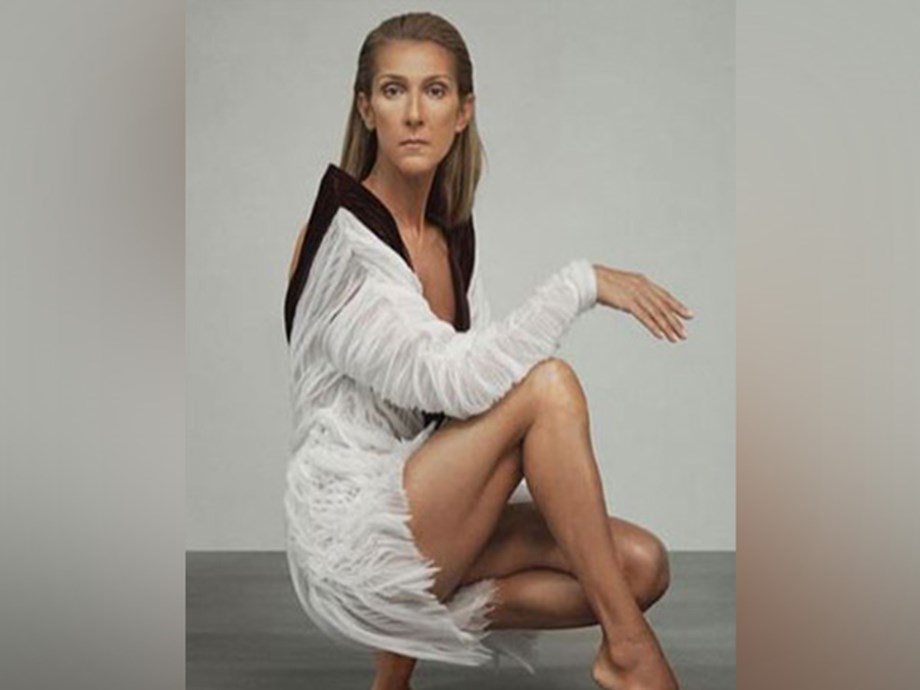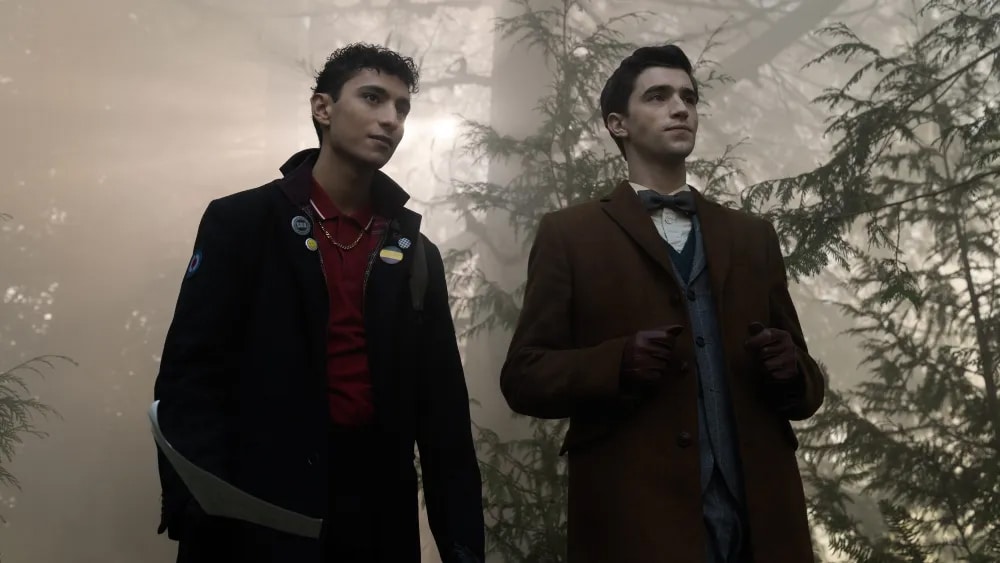
‘National Anthem’ Review: Charlie Plummer Leads a Tender and Timely Rural Queer Awakening Drama
Toward the end of National Anthem, D’Angelo Lacy in splendiferous drag sings a powerful a cappella rendition of “The Star-Spangled Banner” while an assembled group of Queer Rodeo competitors and spectators stand in reverent silence through that hymn of patriotism, hands on hearts. Given that the recently passed Tennessee bill banning drag performances is looking to spread through red states and legitimize transphobic discrimination, the scene takes on added poignancy. That helps bolster the emotional heft of first-time writer-director Luke Gilford’s gentle New Mexico-set story of self-discovery in a chosen family.
Related Stories
Gilford knows the setting well. He grew up in the Southwest, with fond memories of attending rodeos with his father as a kid, only later becoming aware of how homophobic and narrow — white, Christian conservative, macho — mainstream rodeos could be. Returning after years of studying art and working in New York, Gilford discovered the International Gay Rodeo Association, a welcoming subculture for the queer community, including the people of color largely shut out of the traditional circuit.
National Anthem
The Bottom LineA nice mix of sawdust and sentiment.Venue: SXSW Film Festival (Narrative Spotlight)
Cast: Charlie Plummer, Eve Lindley, Rene Rosado, Mason Alexander Park, Robyn Lively, Joey DeLeon
Director: Luke Gilford
Screenwriters: David Largman Murray, Kevin Best, Luke Gilford
1 hour 39 minutes
He began interviewing and photographing people he met at IGRA rodeos, eventually publishing a monograph titled National Anthem: America’s Queer Rodeo, the inspiration for the screenplay he co-wrote with David Largman Murray and Kevin Best.
The film is a little wispy, too often slapping another song on another dreamy sequence rather than giving us more intimate access to the main characters — let alone the secondary figures who make up the tight-knit queer family, most of whom don’t even get names. But the authenticity and distinctiveness of the milieu keep it involving.
The same goes for Charlie Plummer’s tenderly yearning performance in the central role of 21-year-old Dylan. A solitary type, he works as a day laborer on construction and ranch jobs, but his loving nature is evident in the way he takes care of his adoring preteen brother, Cassidy (Joey DeLeon). Their single mother, Fiona (Robyn Lively), is a recovering alcoholic hairdresser with a history of dead-end relationships, mostly too busy going on dates to be attentive to her sons’ needs.
When Dylan is hired by rancher Pepe (Rene Rosado) to do two weeks’ work on a property way out of town, he’s the only non-Latino on the crew — clearly not the first time his isolation has been compounded by being a non-Spanish speaker. But his curiosity is piqued from the moment he crosses the “House of Splendor” gates and sees two beauties dressed like chiffon-clad prom queens galloping along on horseback through the fields. They turn out to be Pepe’s trans girlfriend Sky (Eve Lindley) and nonbinary ranch den mother Carrie (Mason Alexander Park), both of whom take an instant shine to warm but shy Dylan.
Sky’s flirty manner with him sparks a cheesy sex fantasy for Dylan, one of a handful of places where the movie seems corny and simplistic. Likewise, his immediate ease among the House of Splendor’s extended family, which includes blissed-out gay men gardening in pink thongs.
Sure, it’s lovely to see an idyllic picture of such an enveloping safe space in a rural queer community. But it would have given the script more substance to know whether Dylan had any previous exposure to LGBTQ environments or had ever questioned his sexuality. All we really know about him is that he’s the one selfless responsible adult in his household.
When Sky invites Dylan to the Queer Rodeo, where Pepe rides bulls and she competes as a barrel racer, the affection between them is already swelling into mutual intoxication. He suggests he might be too dull for her, and Sky replies, “I don’t think you’re boring. I just think you haven’t met your people yet.” At the evening entertainment after the events, Sky lip-syncs to Brenda Lee’s “Break It to Me Gently” and Dylan is a goner.
Back at the ranch, the residents share a pot of mushroom tea, which breaks down any remaining barriers. Dylan gets into a trippy threeway with Sky and Pepe, but it’s obvious she’s the main attraction for him. While Sky and Pepe have an open relationship, and she reminds Dylan that anything between the two of them is “just for fun,” her growing intimacy with the newcomer doesn’t escape Pepe’s attention.
Enhanced by the appealing chemistry between Plummer and Lindley, all this appears to be setting up a standard romantic-triangle conflict, which to the filmmakers’ credit, doesn’t play out in the expected way. Nor does Fiona’s homophobia when Dylan takes Cassidy along to one of the weekend rodeos, and the boy’s propensity for playing dress-up makes him eager putty in maternal Carrie’s hands. “Are you a boy or a girl?” Cassidy asks them. “I’m neither,” replies Carrie. “Cool,” says the kid, jumping in the back of the pickup.
Again, the writers could be accused of looking at this idealized microcosm through rose-tinted glasses, but there’s something disarming about the happy spontaneity with which Cassidy responds to the unfamiliar but nurturing environment and its all-accepting inhabitants. After listening to pearl-clutching conservative politicians rail against the supposedly dangerous influence of drag queens on children, it’s extremely touching to watch a semi-neglected kid experience such joy. When Dylan makes his drag debut, showing himself to be a natural with a fiercely sexy take on Melissa Etheridge’s “I’m the Only One,” Cassidy is among those cheering loudest.
Is Dylan’s sudden confidence on the stage psychologically consistent with the character as initially presented? Not at all, but the film’s ideas on finding freedom, self-knowledge and a newfound sense of belonging with a nonjudgmental queer family against the big, beautiful landscapes of New Mexico and the vast openness of nature are hard to resist. The same goes for the depiction of LGBTQ people at home on the rodeo circuit, one of the bastions of traditional Americana.
The romantic reverie of Dylan’s time with Sky unsurprisingly ends in sadness. But Gilford treats all his characters with an infectious generosity of spirit — even Fiona gets redemption — that sweetens the movie’s moments of sorrow. A few more details of who — aside from Sky and Carrie — the House of Splendor’s residents are and how they came to arrive there might have given National Anthem more dimension. But the naturalness of the actors and, in particular, the soulfulness Plummer and Lindley bring to the main characters make for an enjoyable, sex-positive tale of personal emancipation in a queer rural paradise.









































































